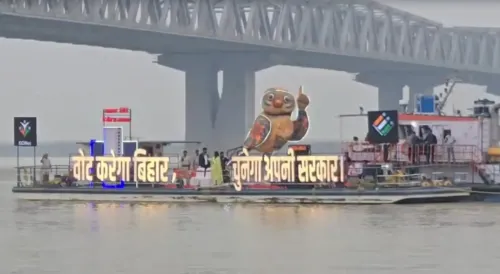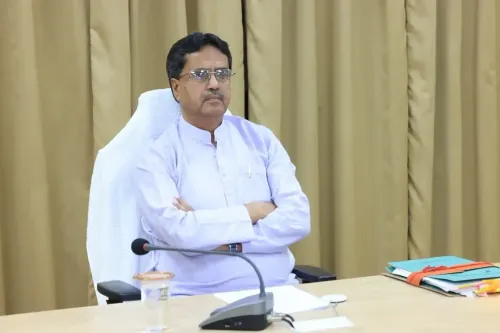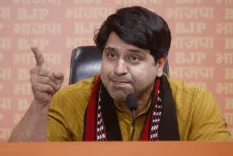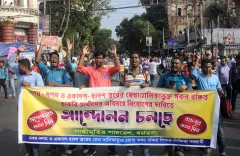Can the NCP, Supported by Jamaat, Overcome Corruption and Instability in Bangladesh?

Synopsis
Key Takeaways
- The NCP aims to empower youth and reform education.
- Political violence remains a major challenge.
- Corruption and extortion are rampant in Bangladesh.
- The NCP has the backing of influential allies.
- Bridging promises and realities is crucial for the NCP.
New Delhi, Aug 5 (NationPress) The National Citizen Party (NCP) has set its sights high for Bangladesh. Their manifesto advocating for a Second Republic significantly highlights the importance of youth empowerment, education reform, and forward-thinking policies.
Founded during the July 2024 mass uprising, the NCP prioritizes the enhancement of youth capabilities, cultural identity, and societal contributions.
Amid the current turmoil, the NCP's ambitious programs appear promising. However, a critical question arises: if they secure power in the impending December elections, can they manage the radical groups causing unrest in the streets? This concern is amplified by the party's commitment to fostering youth engagement while combatting drug abuse and criminal activities.
This is the same party that emerged from the student-led uprising aimed at dethroning Sheikh Hasina. Following her removal, an interim government was established under Muhammad Yunus.
It's well-known that the students' uprising and Yunus received support from Jamaat-e-Islami, an organization banned in India. A government led by the NCP will likely have the backing of both Yunus and Jamaat.
In its manifesto, the NCP also pledges to address corruption. Given the ongoing violence and alarming statistics related to Bangladesh, the NCP's path seems fraught with challenges.
While the manifesto outlines progressive objectives, the stark reality on the ground poses significant hurdles in aligning their promises with actual conditions.
In the midst of these assertions and claims from other political parties about restoring stability in Bangladesh, a recent report presents a grim scenario.
According to a report from Transparency International Bangladesh (TIB), extortion amounting to Tk 2.2 million (approximately Rs 2.21 crore) has been rampant at 53 transport terminals, sandbanks, and stands in Dhaka, previously controlled by the Awami League.
Additionally, there have been incidents of boulder theft from rivers and quarries in Sylhet.
In the aftermath of Sheikh Hasina's government collapse, there have been numerous incidents involving the takeover of leases for bridges, markets, ferry terminals, sandbanks, and water bodies.
When asked about the NCP, TIB Executive Director Iftekharuzzaman referred to it as the King’s party, noting that two of its allies are currently in power.
The TIB report revealed that since August of last year, following Hasina's regime's fall, there have been 471 incidents of political violence resulting in 121 deaths and 5,189 injuries. Of these, 92% are linked to the BNP, 22% to the Awami League, 5% to Jamaat, and 1% to the NCP.
In July, the Bangladesh Hindu Bouddho Christian Oikyo Parishad reported 2,242 incidents of violence against minority communities in Bangladesh, highlighting the alarming rise in communal attacks since the regime change.
The TIB noted that post-August 5, the political landscape has been chaotic.
Iftekharuzzaman stated, “A segment of top leaders from established political parties has engaged in cronyism, extortion, and corrupt practices since that day; these issues have only escalated over the past year. Even after actions by the party's leadership, these practices remain unchecked. Consequently, newly formed political parties are adopting similar models of corruption from their inception, leading them towards self-destruction.”








